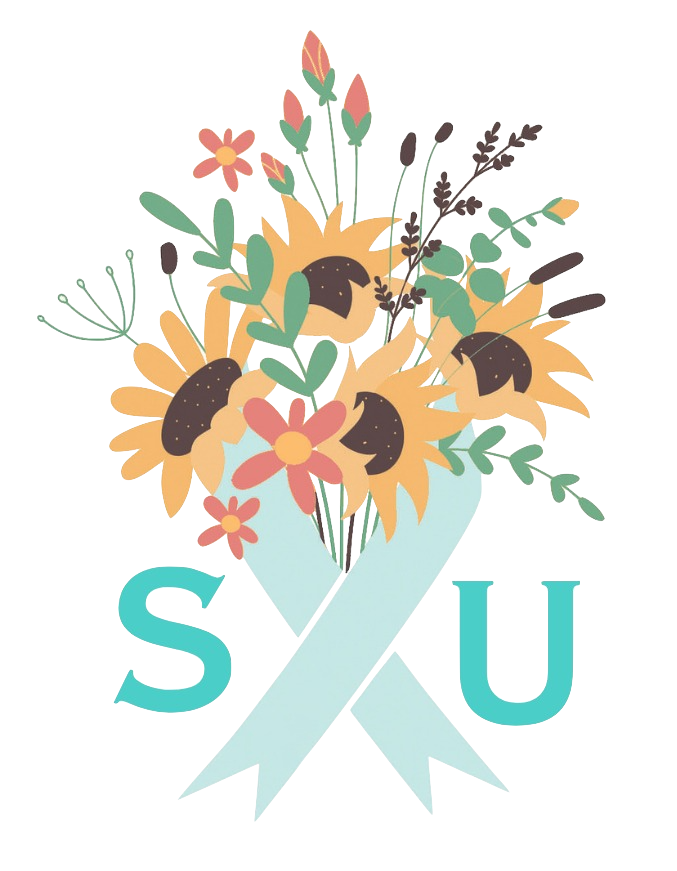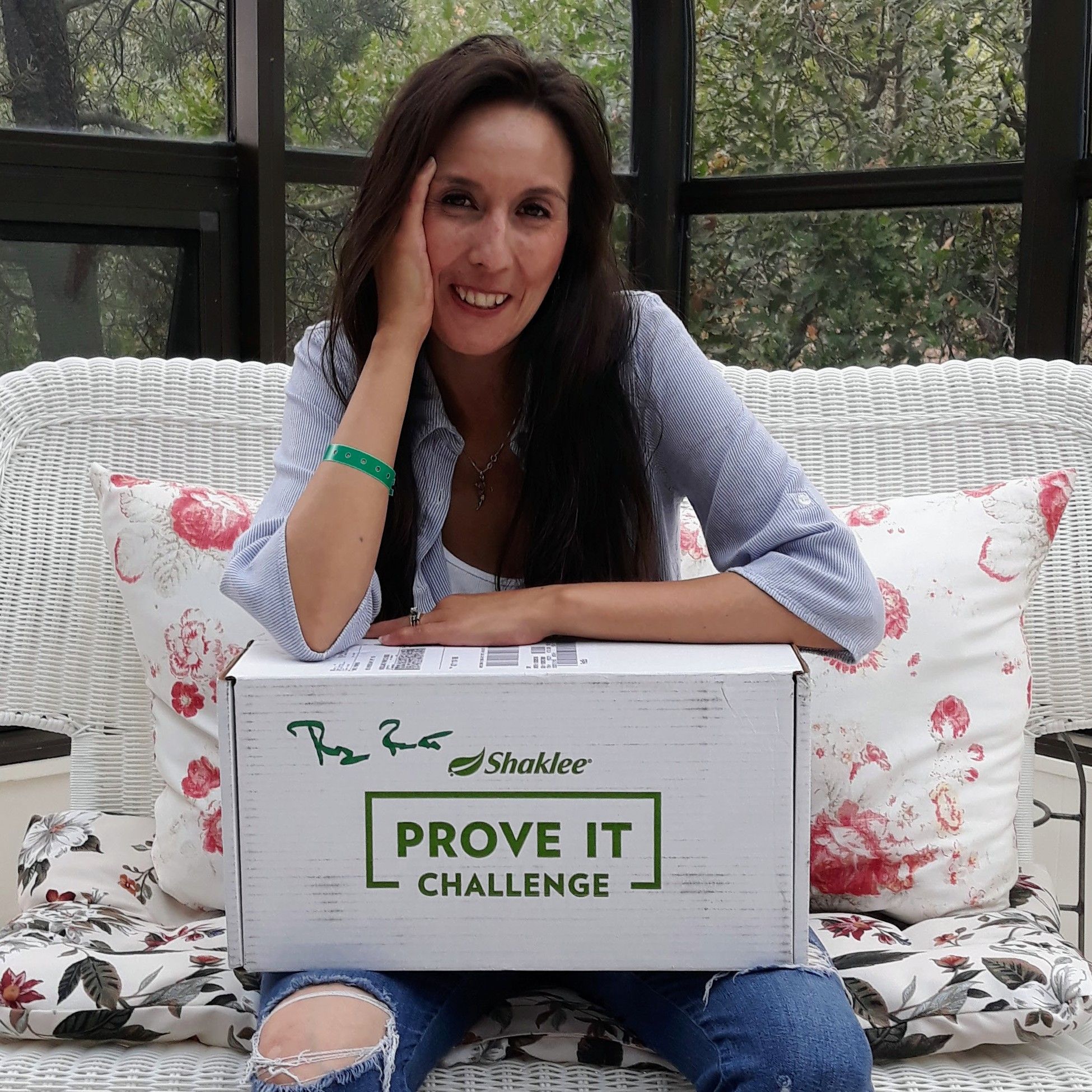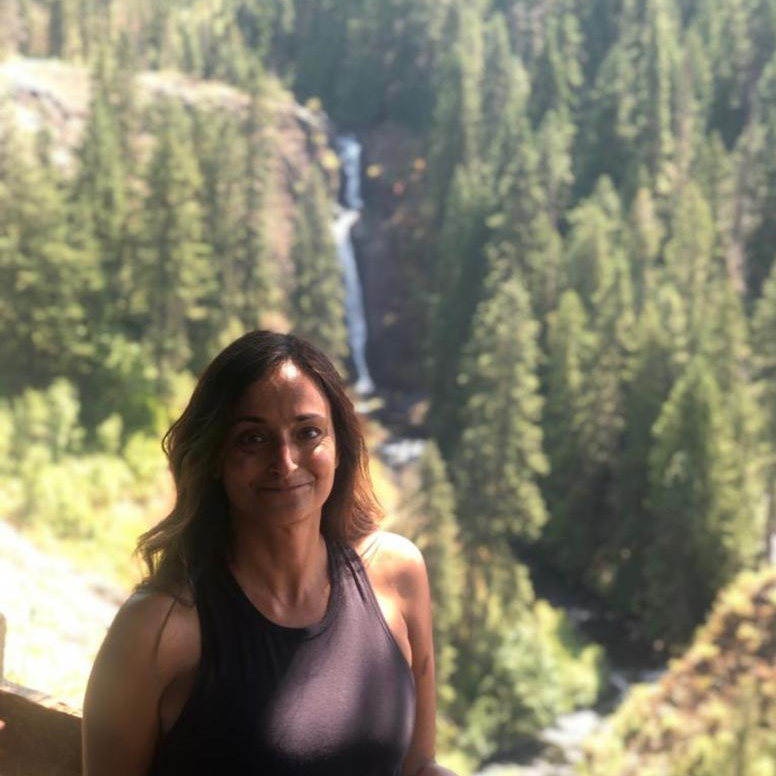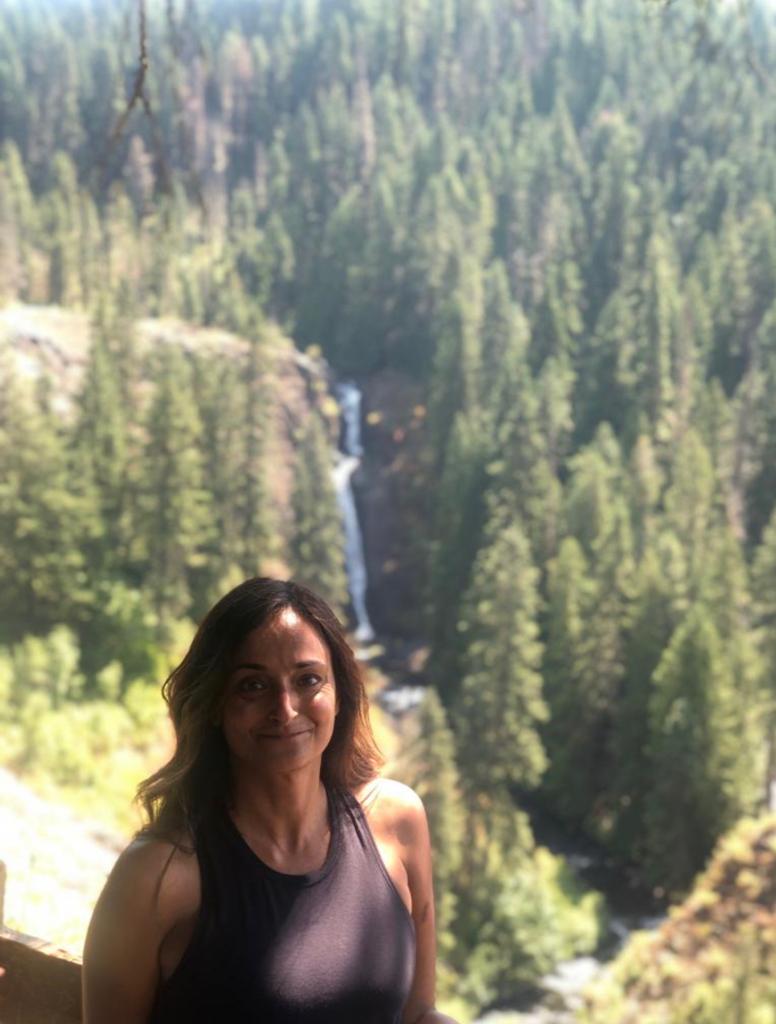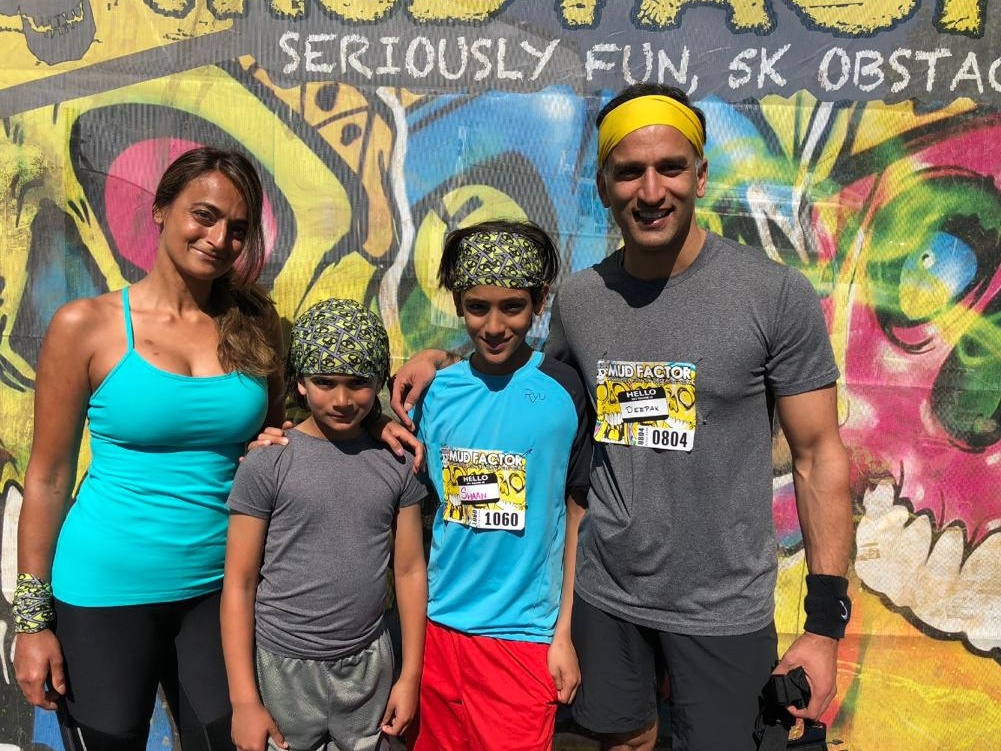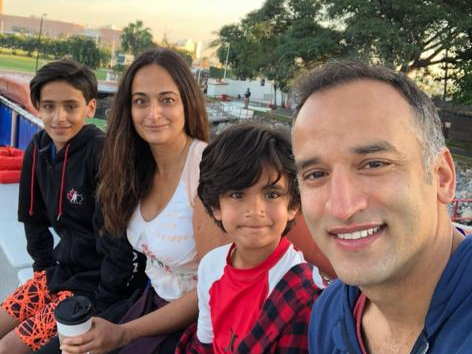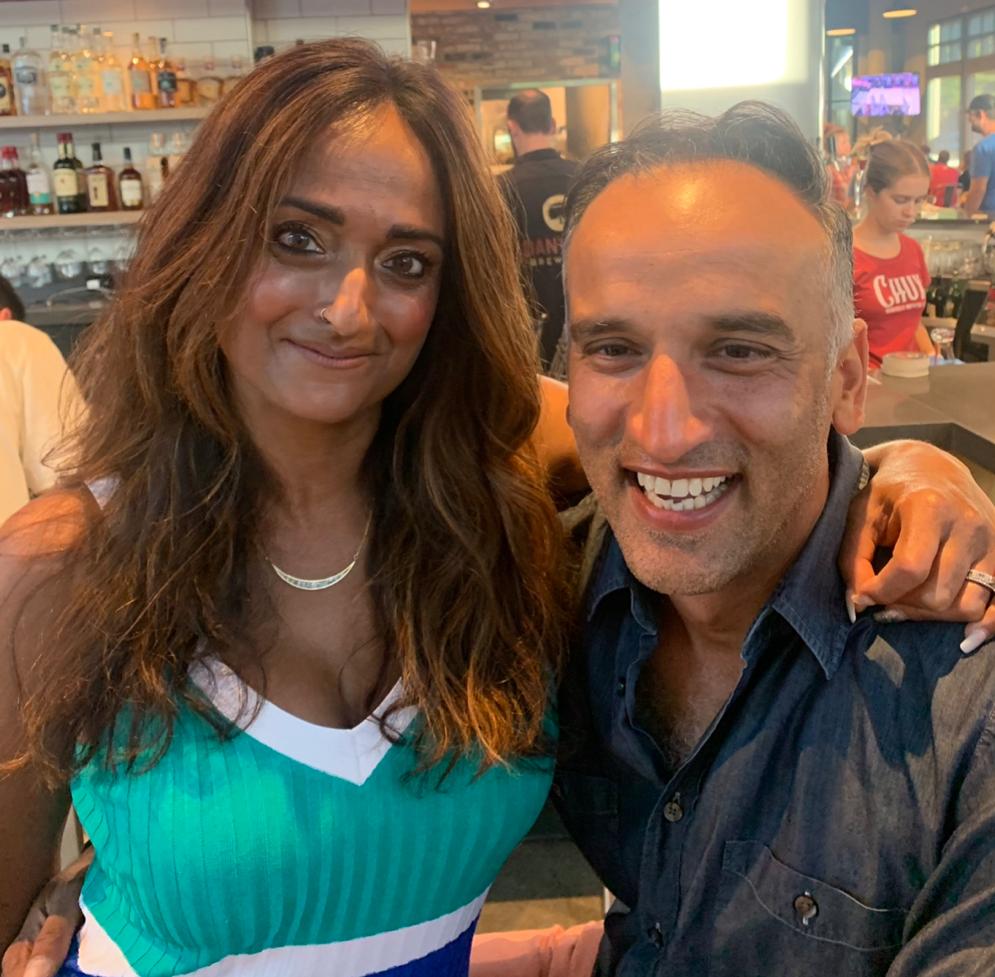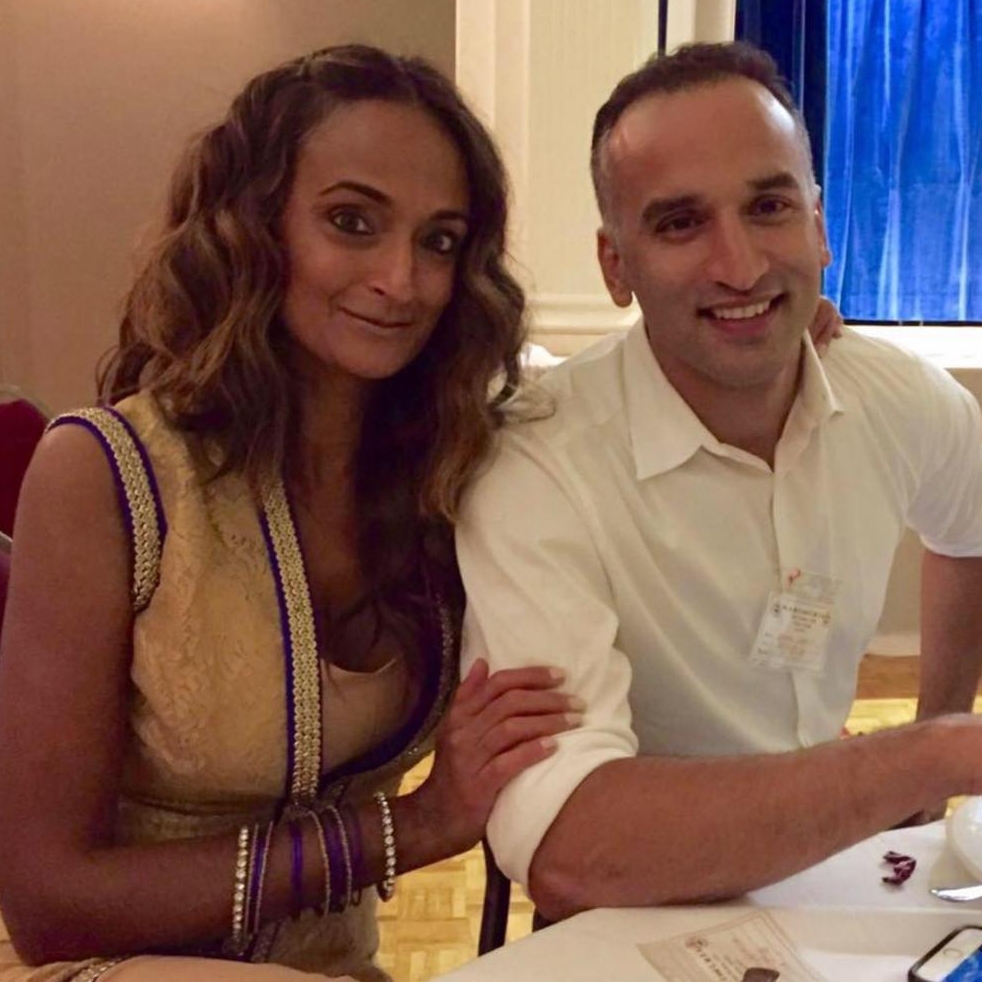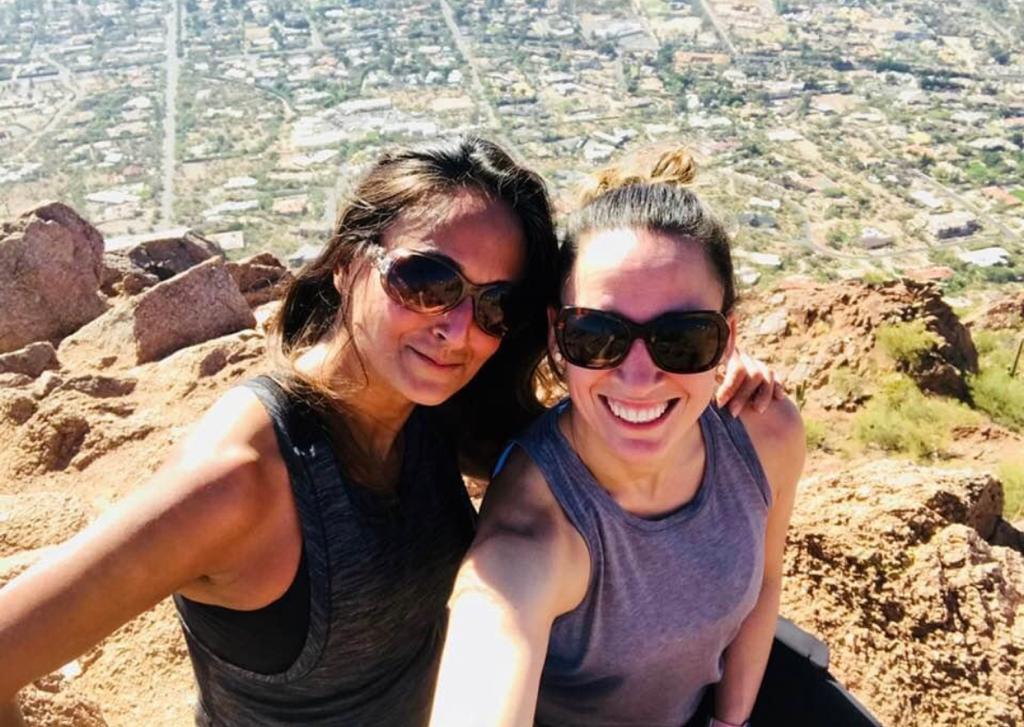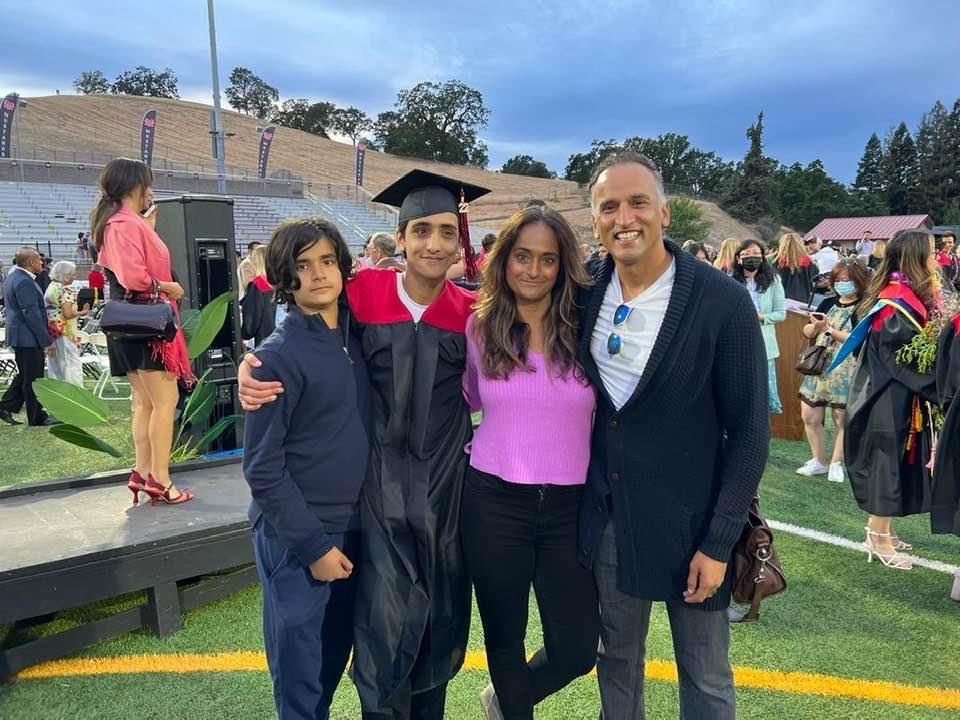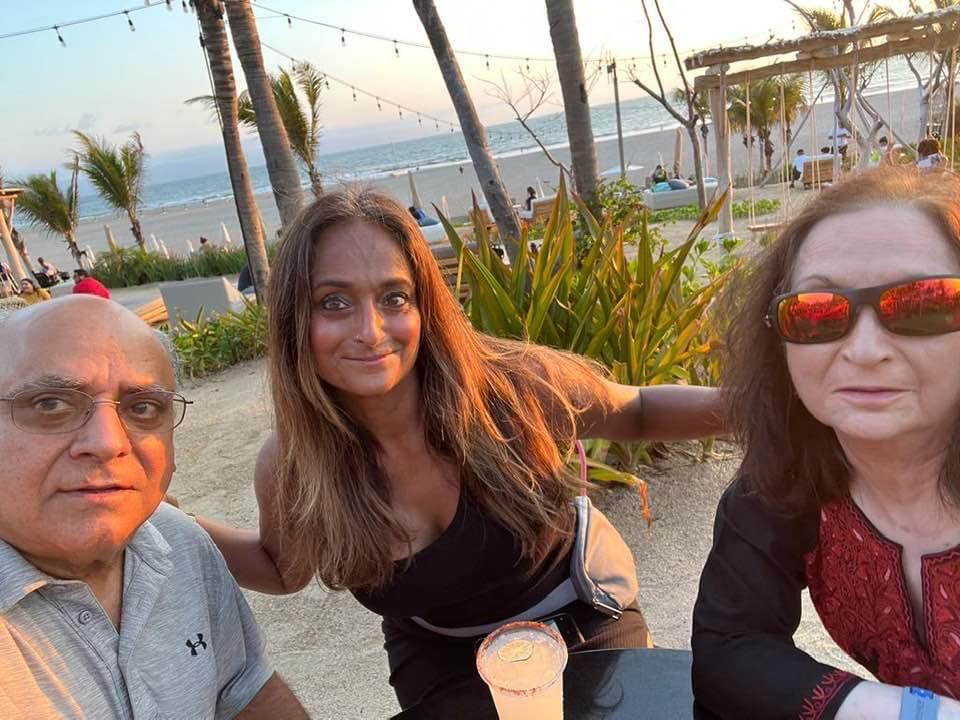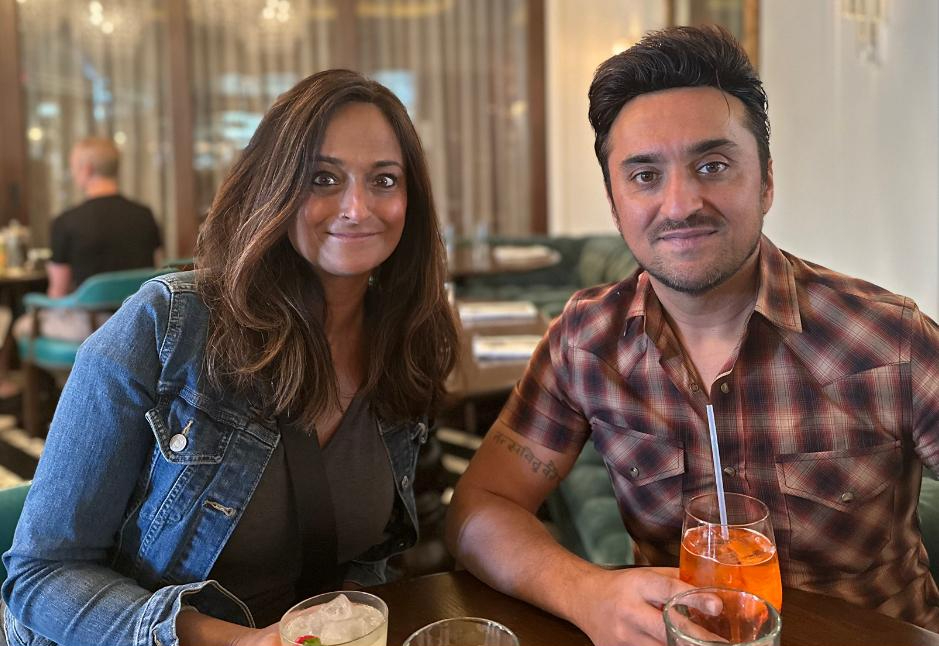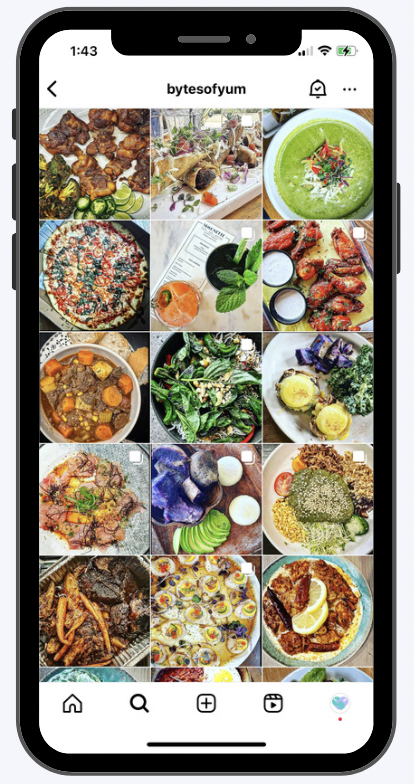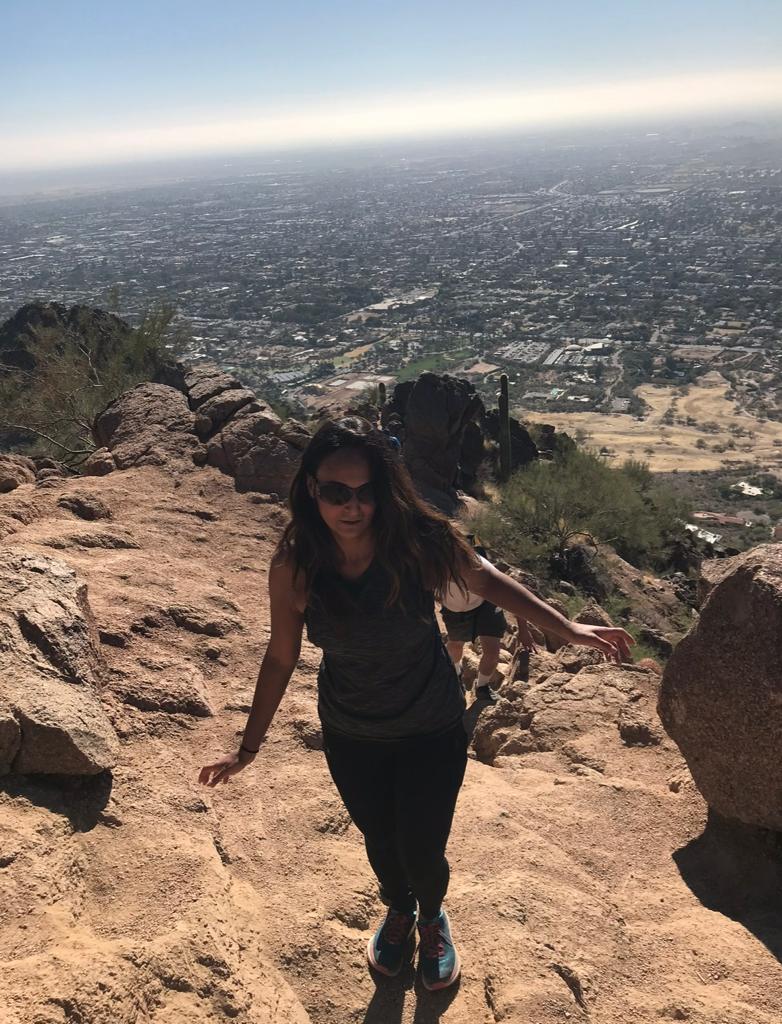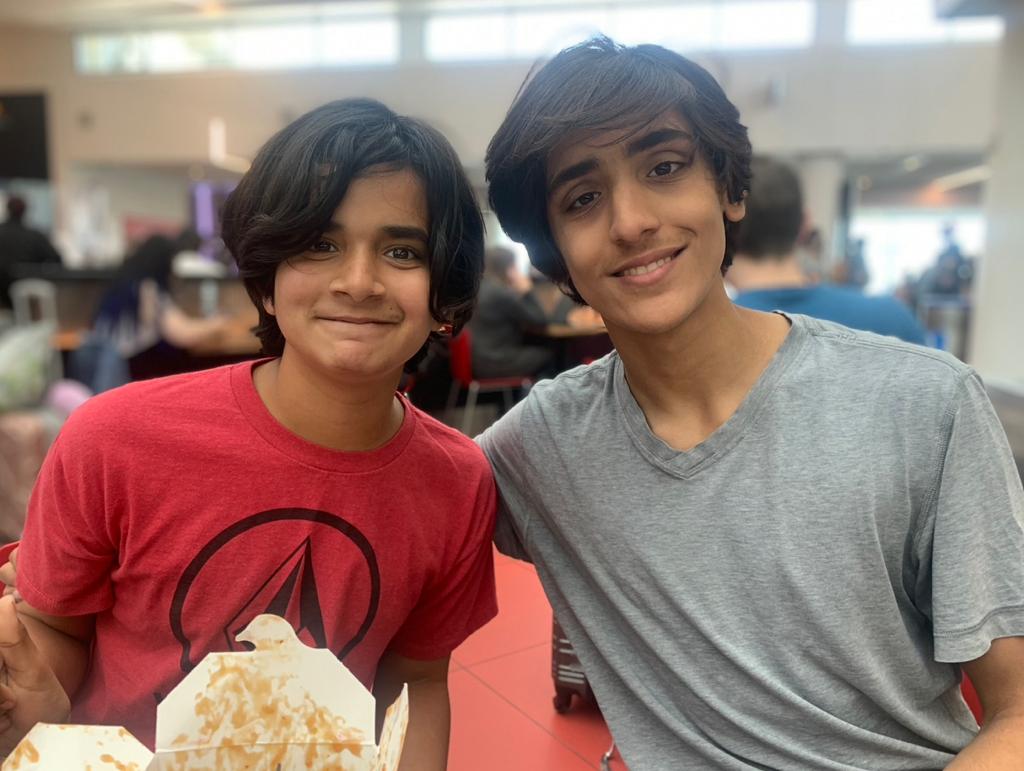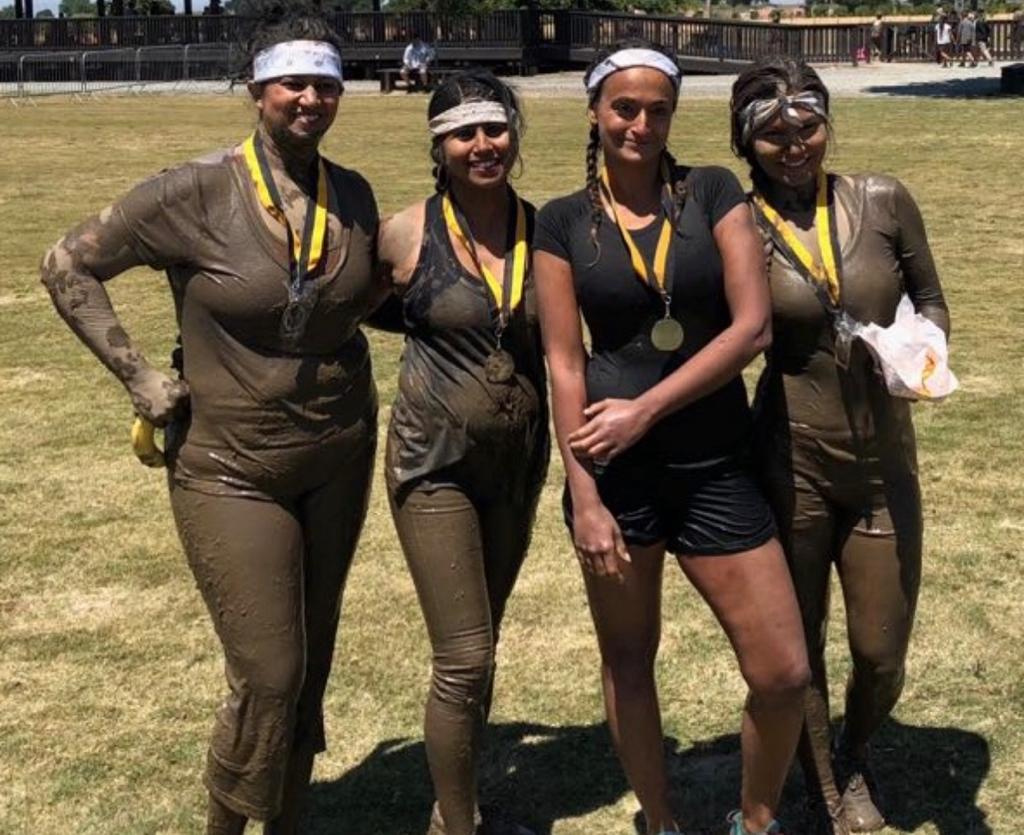Emily Grace Romero
Colorado Springs, Colorado (United States)
EMILY GRACE ROMERO
Scleroderma Stories Issue 5
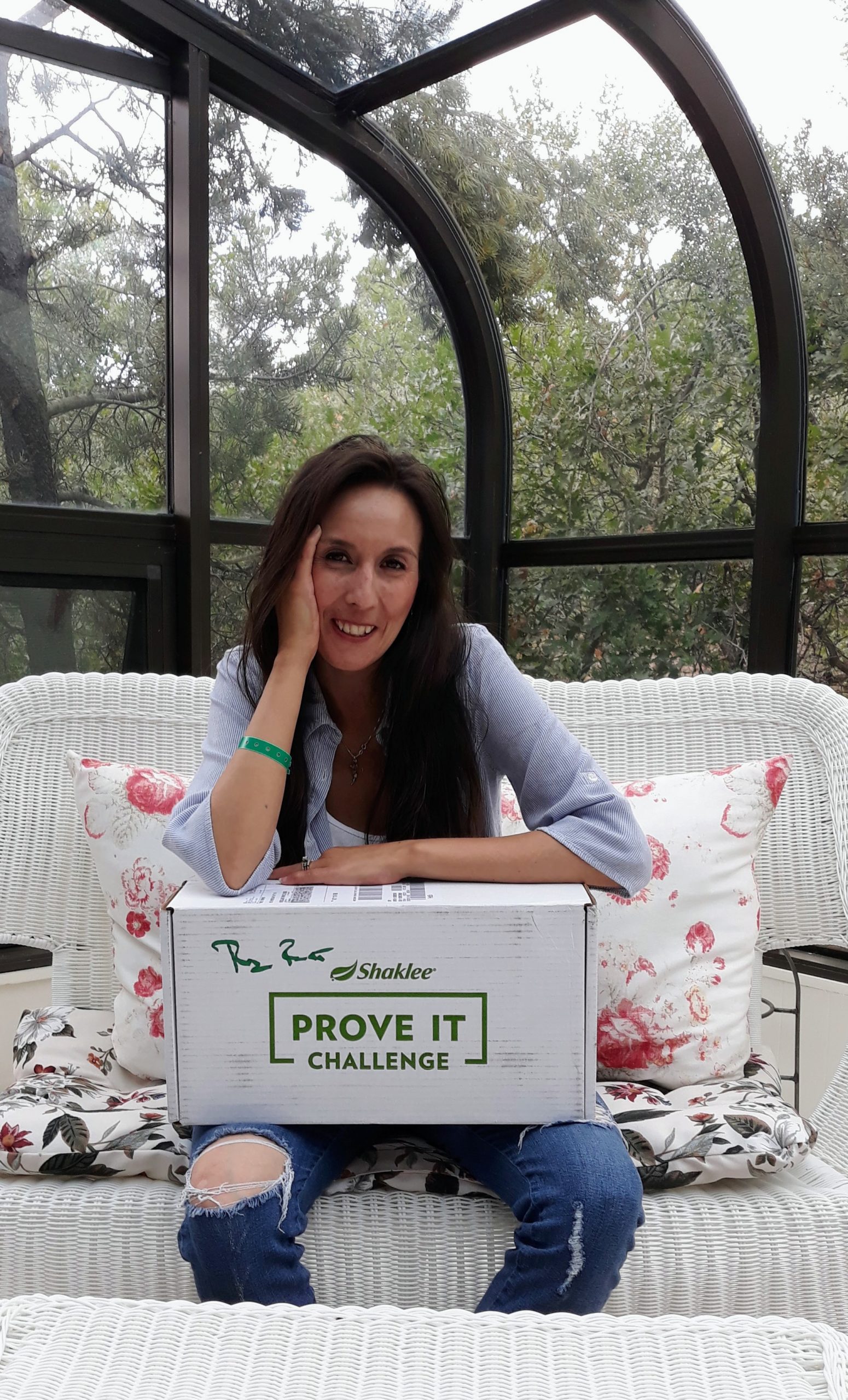
Please introduce yourself
My name is Emily Grace. I am a mom of three daughters who are 17, 18, and 21. They’re my light. They really helped me push through everything. I’ve been married to my husband for 25 years. We also have our dog, Hank. He’s an 8-year-old blue heeler, and he’s the spoiled baby of the family. We live in Colorado Springs, Colorado.
What were your first symptoms of scleroderma?
I was about 26 years old, around 2008. My kids were very little at the time. I was a woman who thought I could do everything. I was trying to hold a full-time job, be a family person, and then go to school. I wanted to try to get a degree in physical therapy and become a therapist.
But slowly, my body started giving up on me. I started noticing some really weird symptoms. For instance, my fingers just started going purple all of a sudden. My younger brother was studying to be a paramedic at the time, and my symptoms really intrigued him. So we started paying attention to it more.
It was just weird because my hands would literally look like a Smurf or they’d be quite white; there was just no blood flow. That was the first symptom. I was trying to take a shower one day when my joints started to really hurt, and then I fell. When I tried to get up, I didn’t have enough strength. It was the first time in my life something like that had happened, and it really scared me.
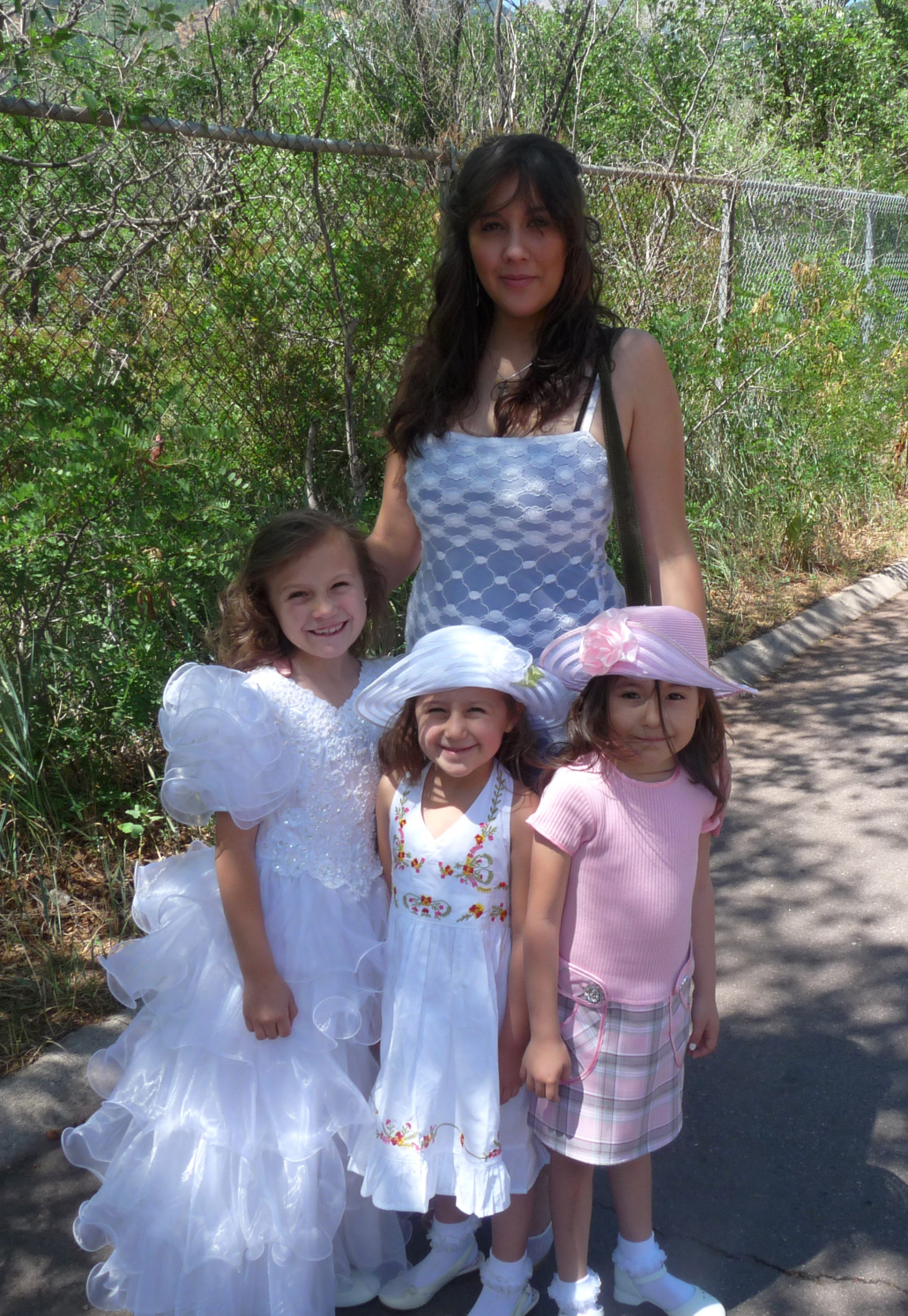
Could you please describe your journey toward diagnosis?
I visited a rheumatologist, who ran a blood test that came back positive for an autoimmune factor. The thing is, my father has Multiple Sclerosis, so I already knew the genetic factor was there. However, I was diagnosed with rheumatoid arthritis at first. I chalked up my symptoms to stress because I was going through a lot then. I kind of had a traumatic childhood as well. I kind of felt like it all came to a head at that age, and it was just like my body was done. It didn’t want to do anything anymore.
The rheumatologist assured me that I’d be taken care of and that it was rheumatoid arthritis. My primary care doctor put me on methotrexate. Looking back now, I wish I hadn’t taken it. The meds basically kicked me into an overlapping autoimmune disorder. Over the course of about five years, I was diagnosed with lupus as well as rheumatoid arthritis.
I was trying different doctors, and one of them suggested scleroderma. I’d looked at the pictures and seen what it does to the skin, and it freaked me out. I thought that there was no way that was it; this guy was definitely wrong. Frankly, I was kind of offended. So I quit seeing him for quite a while. But everything else wasn’t working, and the other diagnoses just didn’t add up.
I was seeing a hospital specialist who kept trying to put me into a study. The study involved trying this new biologic agent that had a 50-50 chance of working for me or causing major damage. My children were so small, and I didn’t want that to happen to me.
I’ll be honest with you, I was a bit mistreated by this specialist and his bedside character; everything about him just really turned me off. He scared me. I was trying to tell him that I was having a major allergic reaction to the medication, and he basically told me to deal with it. That’s when I decided to stop seeing him. I went back to the regular guy after that.
We ran some more tests. He told me that he didn’t see me having the outside skin version of scleroderma, and that he was afraid that what was happening was systemic. He also said that I could have chronic symptoms of CREST. Once he began to explain CREST to me, I couldn’t deny it anymore. I was on prednisone for a really long time. I think that, combined with my bad habits of just trying to overwork myself as a mom and drinking Red Bull all the time, did some major damage to my stomach.
I didn’t know how to live. I was literally just scraping by every day trying to figure out how to get up and take my kids to school or do what I needed to do. But my faith got me through a lot of it.
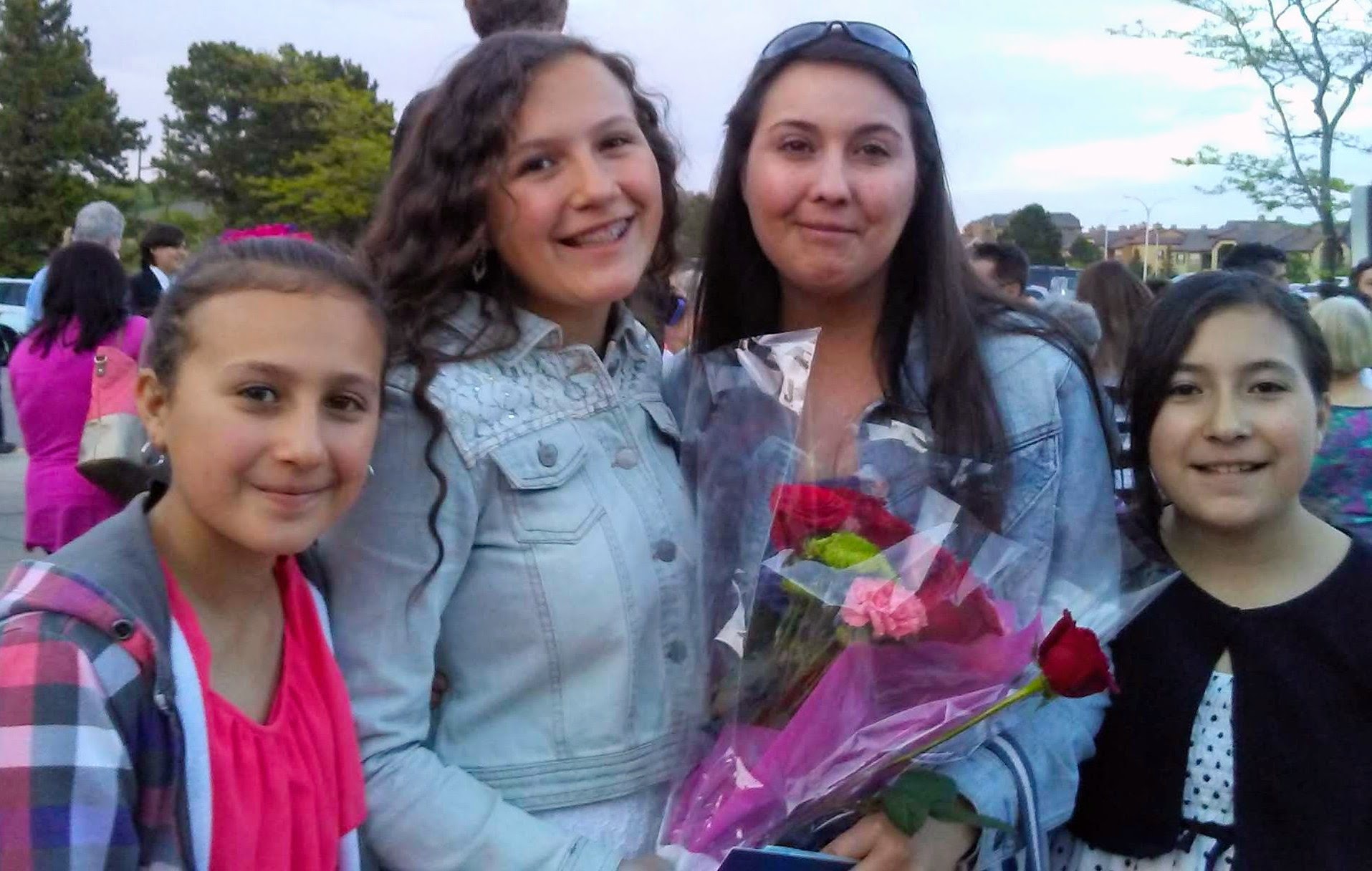
How have your symptoms changed since then?
To explain that, I think it’s important to talk about some of the other stuff I was going through in life back then. Unfortunately, my husband’s mother passed away from breast cancer. I was very close to her, and we were kind of like the story of Ruth and Naomi in the Bible. She taught me everything. That whole thing was really heartbreaking and hard to deal with. So the emotions of that and also having the disease took quite a toll on me. I ended up going from 150 to 110 pounds in 45 days.
It was super scary because before that, I was dealing with my image and feeling ugly because of how fat I was getting thanks to my meds, and then it was almost like I slept all my weight off – which sounds amazing at first, but it really wasn’t, because my stomach was hurting a lot. I couldn’t eat food anymore. It was literally like something just grabbed my stomach and crushed it. I had esophageal problems as well; it was just a really rough time.
Fast forward three months to January 2018. I came home from church one day, walked through my door, and everything went dark all of a sudden. I couldn’t see anything. I could see my husband from one side of my face, but not the other. I sat down, he got me some water, and slowly the vision started coming back. I went to work the next day not thinking anything of it, but then my eyes were hurting, so my boss sent me home.
I ended up going to this small town eye-care doctor, and he thought I had a mini stroke. He looked behind my eye and he said “Something’s happening. You need to go to the ER.”
I’ll be honest with you, I was done with being poked and prodded and drained of my blood all the time. I did not want to go back. I had to go though, because he was like, “If you have a stroke tonight, I don’t want to be responsible to your family.” So they rushed me into the back. Turns out, I did have a mini-stroke – a clot behind my right eye.
When the blackness came at first, it was terrifying. But thankfully, the blood flow returned, and I survived. However, during that ordeal, they discovered I was also suffering from gastroparesis. This diagnosis was verified during a visit. I also had a broken heart and a vein issue where the blood wasn’t flowing correctly, causing chaos in my body. In 2018, after experiencing the mini-stroke, I was given the option to have a filter placed in my heart to prevent future strokes. I was taking a total of 21 medicines, but the side effects were taking a toll on me. I was miserable, experiencing skin issues and even falling asleep while driving.
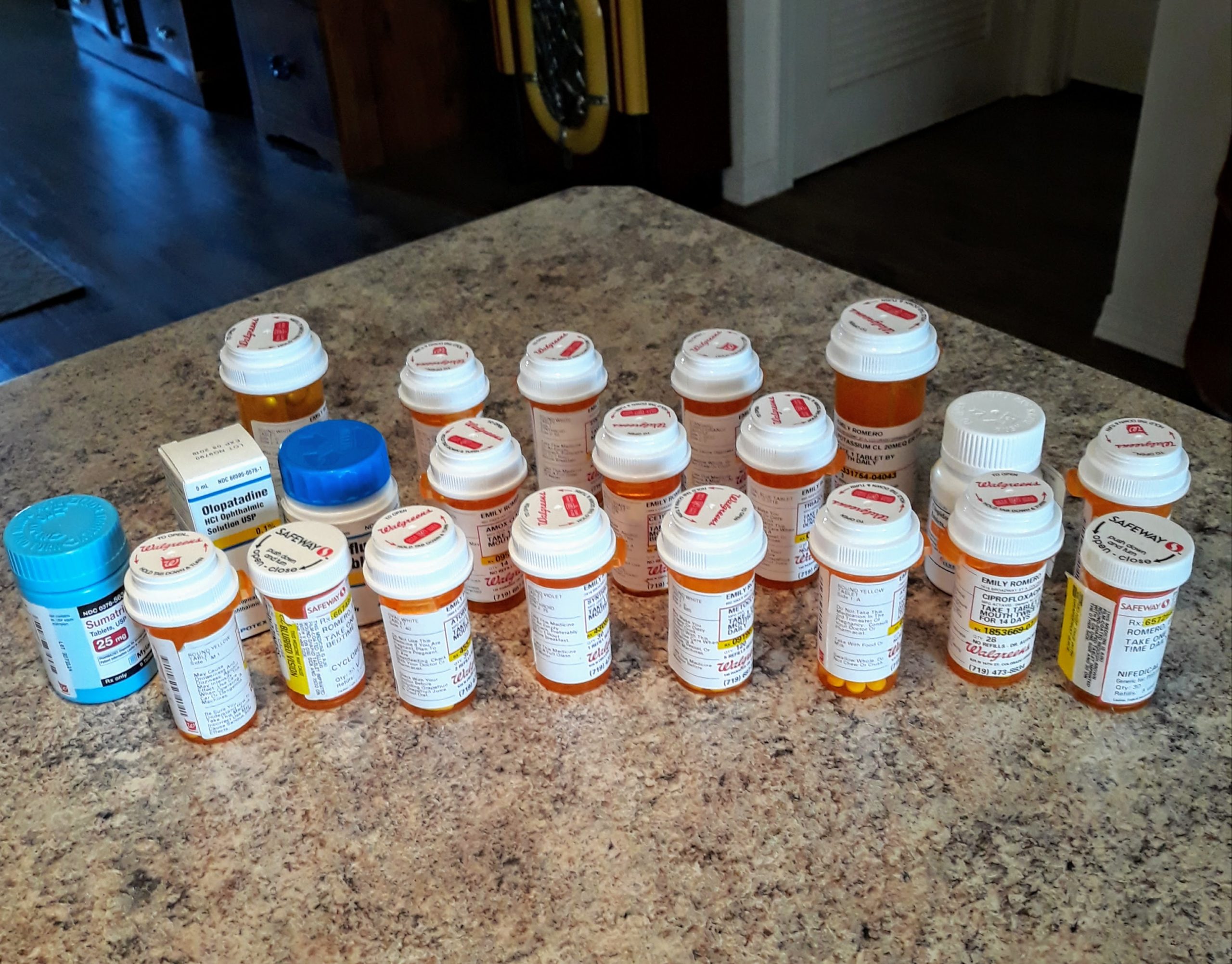
What inspired your pursuit of holistic and functional medicine?
After the mini-stroke, I decided I had enough, and my husband and I made a life-changing decision to move to the beautiful mountains of Colorado to escape the emotionally distressing environment we were in. We held onto our faith and I continued to teach on Sundays while also finding a job in the prayer line, which was a source of encouragement. Although I didn’t stay in that job for long, it provided me with a boost of energy and support.
While on this journey, I encountered a man in the church who had a sick niece with a suspected autoimmune disorder. As someone with personal experience, I cautioned him against the long-term use of prednisone and urged him to explore natural nutrition. This accidental encounter led me to discover a holistic approach that focuses on the mind, body, and spirit.
With support from my community and aligning my mind and body, I started taking high-quality multivitamins and protein shakes, since I had difficulty eating due to gastroparesis. Unfortunately, the hospital misdiagnosed me as bulimic, causing further distress. This experience solidified my desire to pursue holistic and functional medicine that addresses the root cause of problems. Now, after years of pain, fear, and tears, I realize they weren’t wasted. I’m grateful for people like you who have taken the time to listen and help me.
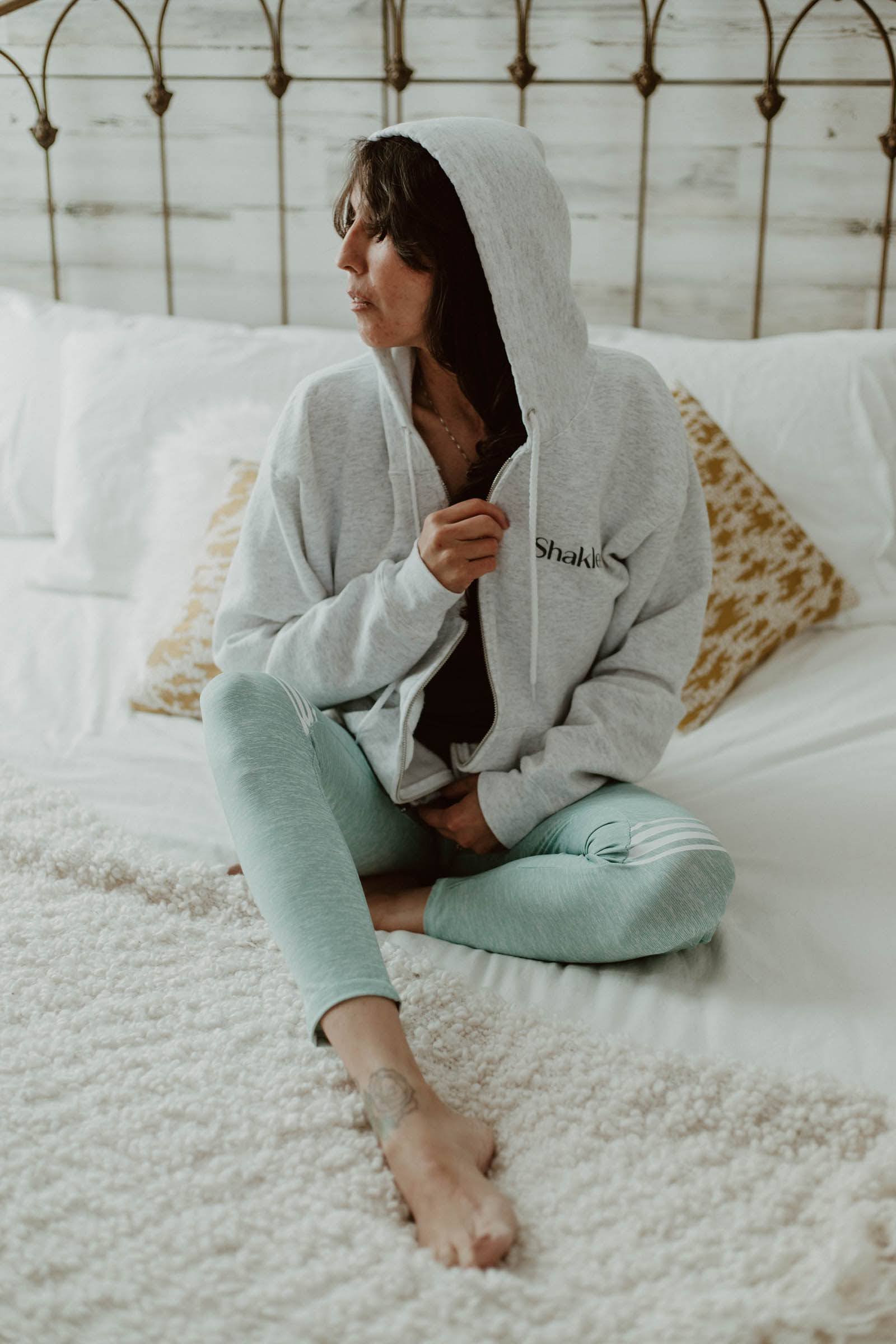
What are your goals for the future?
Writing a book about my story is a goal of mine, and your support is invaluable. I’ve transformed my life by maintaining a positive mindset and prioritizing my health. While I’m not perfect at it, I am passionate about my supplements and the positive impact they have had on my life. They have also provided financial opportunities, as I can now impact others and share their stories, just like you’re doing.
It’s not about me, but about helping people who are struggling and unsure of what to do. If we can come together, listen to people’s symptoms, and be honest about our limitations, we can empower patients to make informed decisions about their health. Ultimately, our lives are in our own hands, and by finding a middle ground between medical expertise and patient autonomy, we can reduce unnecessary suffering.
I believe that my plans and dreams, which I outlined 17 years ago when I was your age, still hold significance. I wrote about my aspirations and desires during my college years, envisioning my life 10 years ahead. Although it has been 20 years since then, I have already accomplished many of the things I set out to do. This realization has been both intriguing and helpful in setting me on the right path.
I want to encourage young women to discover their true identities and not lose themselves amidst various influences and pressures. It’s essential to find out who you are and pursue your dreams. Looking back years later can be truly enlightening. Personally, one of the items on my list that I haven’t yet completed but am most excited about is becoming a figure fitness champion.
While I may not compete in the traditional sense, I want to incorporate fitness into my life and share my journey on social media. I don’t want to blend in with everyone else by just jumping around on reels. Instead, I aim to find a unique and authentic way of expressing myself, sharing stories, educating, and promoting wellness. It’s more about being a genuine example than simply selling a product. Being on camera is new to me, but I’ve been challenged a few times to go live, and the response from my followers has been overwhelming. It’s all about finding my true self and figuring out how I can make an impact.
What are some of your hobbies and interests?
My favorite thing to do these days is to teach. I really like to see people light up and learn about different things. I was a youth minister. I taught kids of all ages, from preschoolers to seniors. I did a lot of Sunday school teaching. I like teaching stories. I find that stories, whether in a book or in real life, are just so inspiring and give us hope. So that’s something else I’m kind of getting into.
I was kind of forced to go on hikes and walks as a kid. I do still enjoy it if somebody takes me out there, but my disease really affected that part of my lifestyle here in Colorado, especially the Raynaud’s. I’m kind of in a new phase of life, finding out who I am as a person and not just a mom. When I was younger, before I had children, I was a wellness fanatic. I really wanted to get into personal training. Right now, I’m finding myself again and getting back into that part of my life. It’s partly the reason for my success in managing the disease instead of the disease managing me.
What helps you get through difficult times?
My family was the driving force behind my motivation. As I mentioned before, there have been several losses on my husband’s side. His stepfather passed away from a stroke in 2014, followed by his grandmother in 2016 and his mother in 2017 due to breast cancer. Then, in 2018, I had a stroke. It made me realize that I couldn’t leave this world and burden my family with such pain. Losing these close family members was a driving force to motivate me to find a solution to get better so that my family didn’t have to worry about losing me to sickness as well.
I had witnessed the loss of many significant individuals, and one day, as I lay in bed, I found myself crying and praying to God. I begged Him to let me stay for my children, pleading that I had to be there for my girls. During that vulnerable moment, I realized that teaching and singing were my constant outlets. Although I’m not the best singer, I love praising God through songs.
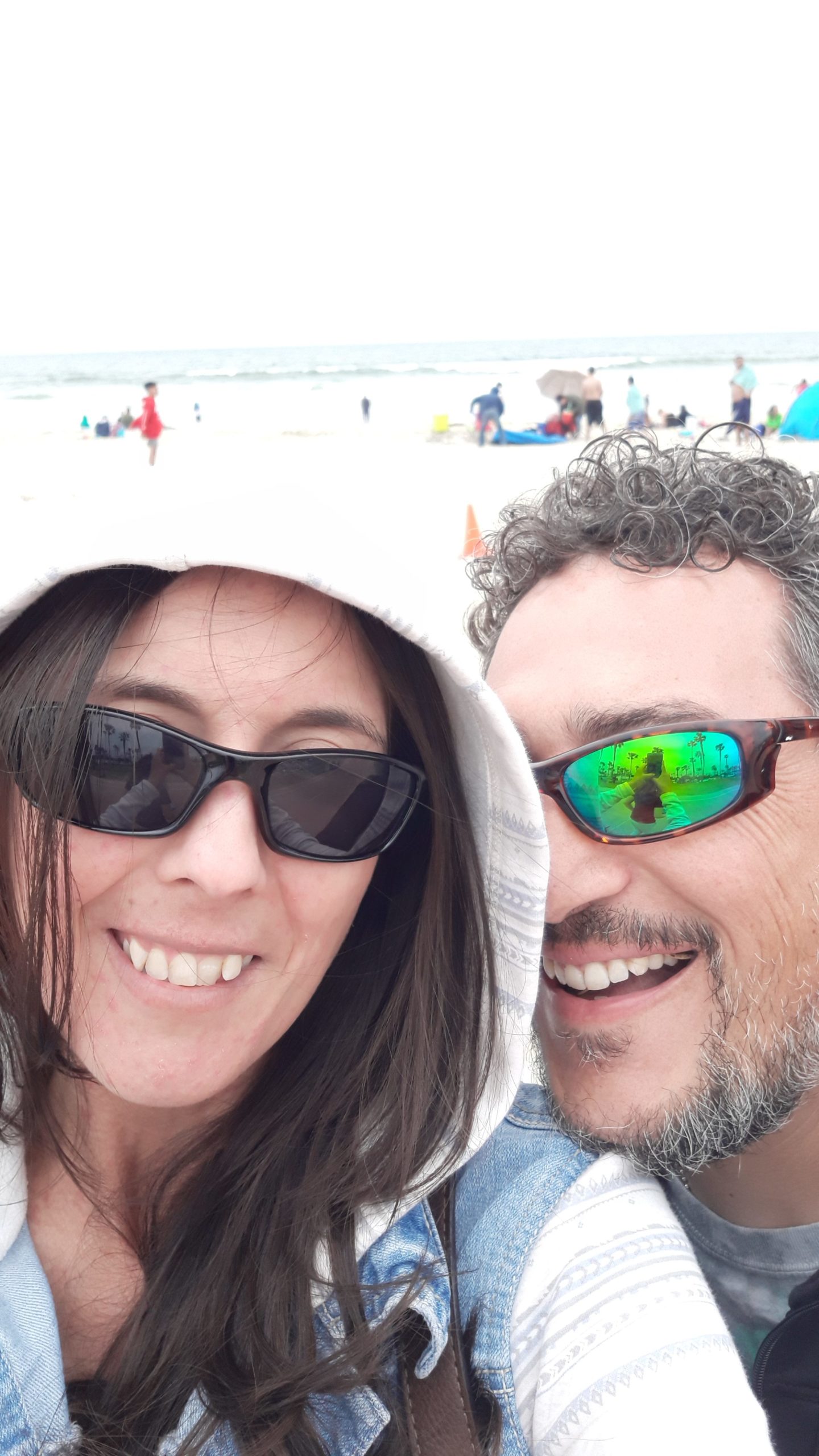
What advice do you have for those with scleroderma or other chronic illnesses?
My advice would be not to be afraid of seeking second opinions or exploring alternative treatments. Take a look at your surroundings and assess what you’re dealing with. Sometimes, people in the workforce lead unhealthy and miserable lives due to work-related stress, being overworked, and being underpaid. This kind of emotional burden and negative energy can create turmoil in the body. I can’t provide a step-by-step solution, but I encourage you to take bits and pieces of this advice and make it your own.
Ultimately, my advice is to listen to your body and trust your intuition. We all have that inner voice that tells us when something isn’t right. Pay attention to it, because it can serve as a warning sign. Don’t second guess yourself just because someone else says something. We need to value our own thoughts, emotions, and feelings and not let others take them away from us.
Finding a balance between being a positive example and dealing with the challenges of the world can be tough. But it’s important to stay true to who you are and not let others diminish your belief or your connection with God. I want to give hope to all my former students and remind them to hold onto their upbringing and where they come from. Be a beacon of light in this world, and don’t let yourself become like those who try to take away our faith. Find your true identity, and let God be your guiding light. By doing so, you will shine brightly for Him, make a difference, and help others.
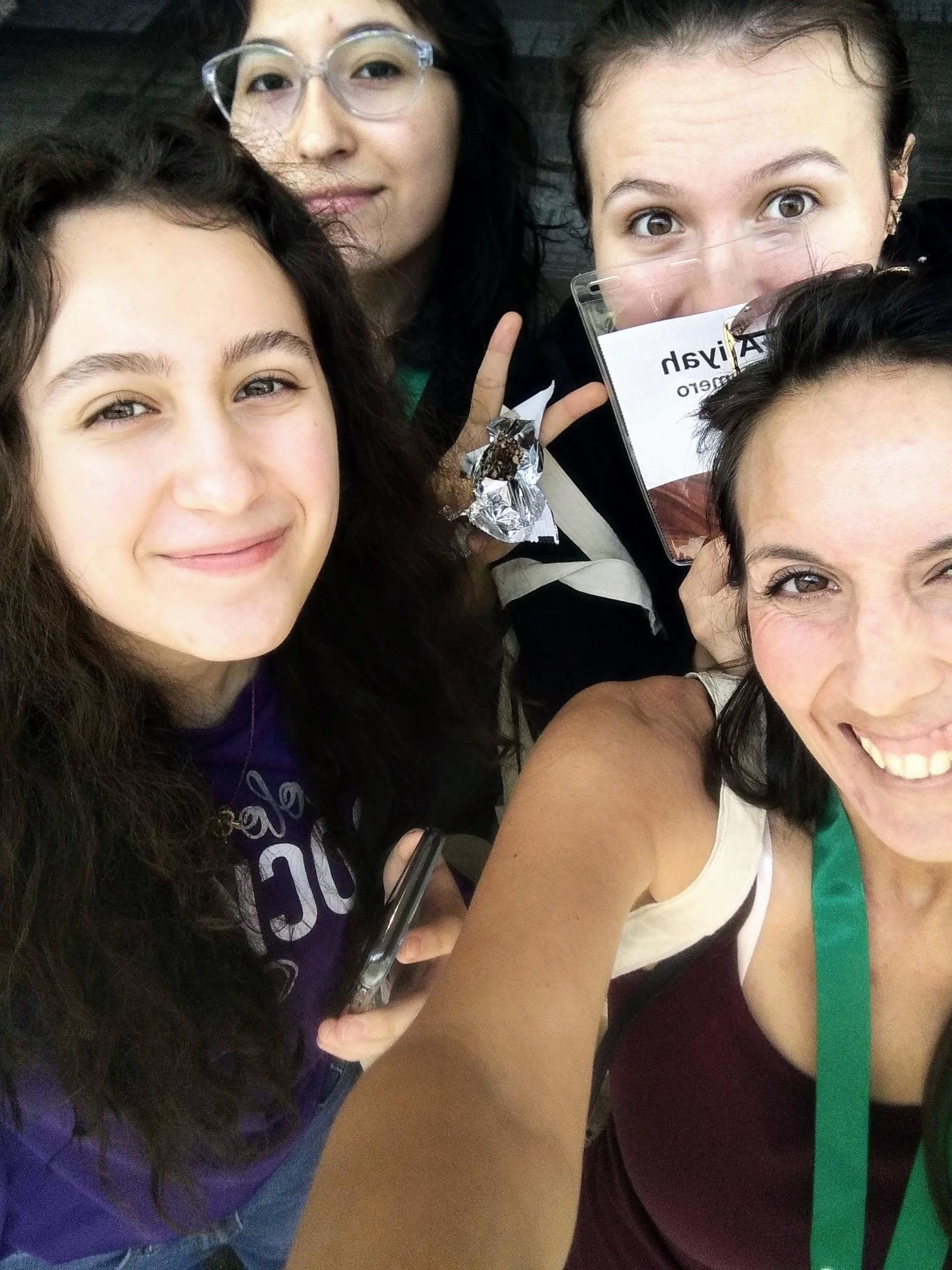
A message from Emily Grace…
Keep these stories of inspiration in your heart, and be there to listen to and guide others with humility and a sincere spirit.
You will achieve amazing things and find fulfillment. Let your creativity and the power within you guide your actions, and you will become a valuable and cherished individual in this world.
Be sure to follow us on Instagram and Facebook (@sclerounited) to see more scleroderma warriors’ journeys in our weekly Sclero Sunday series.
Are you a scleroderma warrior? We’d love to interview you for Scleroderma Stories! Please visit tinyurl.com/share-my-sclero-story or email us at contact@sclerounited.us
